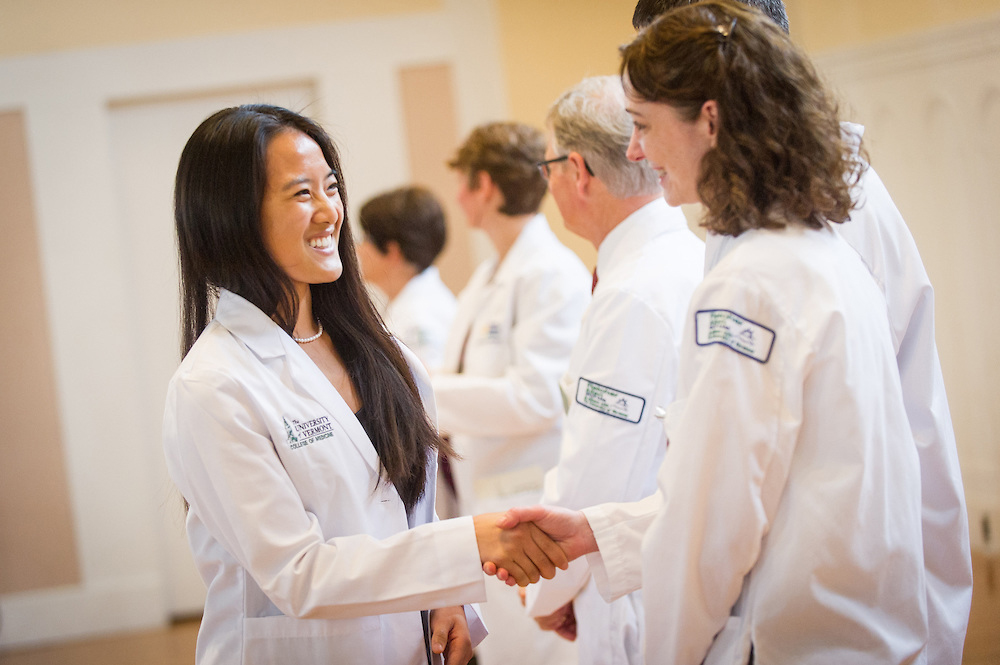By Carolyn Shapiro
Before they start medical school, most students know they’re going to face intensive classwork, long hours of study and practice and the pressure of making life-or-death decisions.
“The curriculum is rigorous,” Christa Zehle, M.D., says bluntly. And she should know: Zehle is not only the associate dean for students and an associate professor of pediatrics at the University of Vermont College of Medicine, she is also an alumna from the Class of 1999.
The taxing curriculum prepares students for the demands of a doctor’s life, Zehle says.
Make some considerations before starting the first year of medical school
“Becoming a medical doctor is foremost a privilege – being able to take care of patients,” she says, “but it also involves significant sacrifice, and it often involves putting the needs of others ahead of your own.”
So, while incoming medical students might think more about stocking up on caffeine and stacking up textbooks, it’s most important for them to consider – before they arrive on campus – all that earning a medical degree entails, Zehle says. They must ask themselves whether they are ready for the hard road ahead and can commit to the work of a physician.
Medical students must possess a high level of confidence to handle the difficulties and disappointments that are often part of the medical education process. They might struggle in an academic environment for the first time in their lives.
“You’ve been at the top of your game,” she says, “and all of a sudden, you’re swimming with a lot of other fish in medical school.”
Coping with the pressures of a medical degree
Zehle says every student uses his or her own methods for getting through the challenges, particularly in the first year. Some will drink a lot of coffee and pull all-nighters, others might run or blow off steam on the slopes. Either way, they need a way to vent, to release the intensity, she says.
“You have to have a support system, whether it’s family, friends,” she says. “You will be tested emotionally, physically, academically.”
The curriculum at the UVM College of Medicine falls into three categories: Level 1, Foundations, covers the basic science, medicine and anatomy courses; Level 2 – the Clinical Clerkship – involves several-week-long rotations through eight specialty areas, where students build clinical skills and focus on preventive and primary care, applying what they’ve learned to date in a patient care setting; and the third level – called Advanced Integration – allows them to gain greater responsibilities for patients and choose a career specialty.
Students also need to prepare for the financial burden of medical school. It’s a costly pursuit that will follow many of them – with student loan debt – for years into their profession.
No matter their personal stresses, in or outside of medical school, students always must remember that patient care is their No. 1 priority.
“Sometimes, when you’re in the midst of your medical education,” she says, “you forget why you’re doing it.” Putting the patient first and serving the medical profession and our community, is the “brand” that defines the UVM College of Medicine, Zehle says, and one that the college works hard to reinforce in all of its students.
Carolyn Shapiro is a freelance writer.





